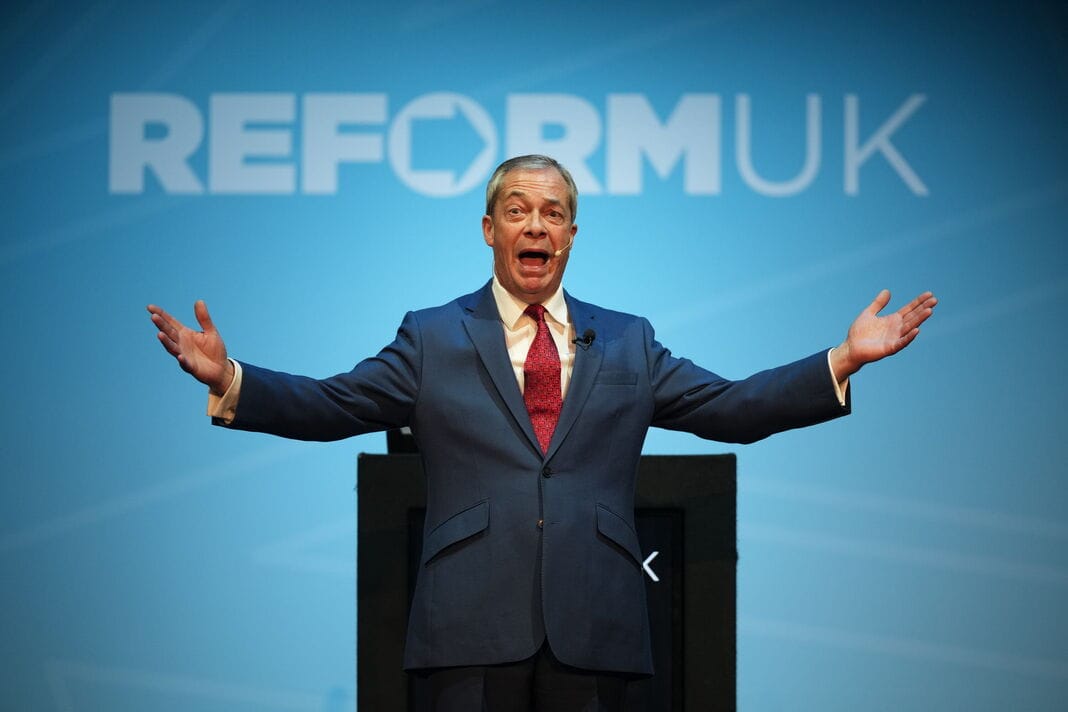How 4% of Migrants have Become a National Obsession.
According to YouGov, 47% of Britons believe there are more "illegal" Migrants than "Legal" Arriving in the UK despite "illegal immigration" representing only 4% of the numbers. Why is this?

Dominating the UK’s national conversation is an issue that’s not only deeply polarising, but one rarely debated in good faith: immigration. Despite comprising just 4% of total yearly immigration figures at the time of writing, so-called "illegal" migrants dominate political debate and public imagination in the UK. Nearly half of Britons (47%) now believe there are more illegal than legal migrants arriving in the UK, which is wildly out of step with official data.
This contrast between public perception and reality begs a rather potent question: Why has blatantly factual information so often failed to reach the heart of the UK’s immigration debate, and instead, gave way to over-engineered hysteria?

Media Coverage
Small boat crossings are heavily prevalent in the media since former Prime Minister, Rishi Sunak, stood in front of a podium with the slogan "Stop The Boats" across the front and made it his governments mission to reduce crossings. Research done by the Centre for Competitive Advantage in the Global Economy (CAGE) at the University of Warwick shows increased legacy media reporting on small boat crossings has decimated support for helping asylum seekers.
During the 2024 General Election Campaign, YouGov polling showed immigration lagged behind Cost-of-living, Health, and the Economy as the most important issues that would impact the way the electorate voted. Following events such as the Southport riots, YouGov polled on the 5-6th of August 2024, which showed that immigration was the single most important issue to Britons. This sentiment has sustained; more recently, (7 June 2025) Ipsos has reported that 49% of the population cite immigration the single most important issue, placing above health and the economy...

Using Google News, I conducted a brief discourse analysis of media coverage on immigration, health, and the cost of living across the UK’s top 10 best-selling newspapers (Metro, Daily Mail, The Sun, The Times, The Guardian, The Telegraph, Daily Express, Daily Mirror, i News, and the Financial Times) over the past 7 days.
In total, 190 articles focused on immigration, with all but 5 centering on illegal migration and asylum. The Daily Express led with a striking 40 articles between July 31st and August 6th. The three highest-circulation papers, Daily Mail, The Sun, and The Times, averaged around four articles per day, often focusing on asylum hotels and high-emotion narratives involving crime or abuse.
In contrast, the top two public concerns during the 2024 general election, cost of living and health, received notably less attention. Only 32 articles across all 10 outlets addressed the cost of living, with the Mirror publishing half of them. Health received more attention, with 91 articles (around 9 per publisher per week), yet still significantly less than immigration. The 3 best selling newspapers averaged between 1.5-1.7 per day on both subjects.
Given the established link between media exposure and public opposition to immigration, the overwhelmingly negative and disproportionate coverage, particularly around illegal migration, cannot be seen as neutral reporting. When newspapers, especially the most widely read with the richest owners like Rupert Murdoch or Lord Rothemere, repeatedly frame migration through a lens of crisis or criminality, they shape public perception rather than report it. TV news outlets frequently echoing these narratives; therefore, the media ecosystem as a whole becomes a powerful force in manufacturing hostility and lobbying politicians.
Therefore, because newspapers and other forms of media are owned by billionaire individuals, and because they are aware asylum seeker news stories sell, they have a long-term scapegoat they can use to deflect their own precarity. What is most concerning is the fact that coverage has skyrocketed since Labour came in power, considering the number of crossings were down from the year before and the use of former-hotels are also down 15%. The coverage is not representative of the scale of the problem, so neither is the public perception; this may be an indicator that the news machine want this direction of travel for other underlying reasons...

New Media is Taking the Torch
A 2024 academic study into 220,870 tweets about UK immigration shows a high level of polarity between pro and anti-immigration faction, with anti-immigration groups being smaller but denser and more active. For example, just 1% of users (All anti-immigrant) were responsible for 23% of the high profile tweets.
This digital echo chamber is further empowered by algorithmic amplification. As The Guardian describes, social media has become a “polarisation engine,” one that breathes urgency into far-right narratives and turns them viral—despite their fringe origins. A stark example came during the so-called Farage Riots, when asylum hotels were attacked and, in some cases, targeted for arson. The unrest was fueled by misinformation that originated on LinkedIn, before spreading rapidly across X (formerly Twitter) under Elon Musk’s ownership, where it was amplified by influential accounts and algorithmic recommendation.
Politics and the Media are bound on this issue...
Political parties also heavily influenced by the narrative set by media, and even more so now social media has bridged the connection between journalism and popular public opinions, which has led to consecutive governments following a dogmatic mythology and discursive methodology surrounding asylum and immigration.
As argued by Sam Bennett (2025), government language and party manifesto's since the early 2000's have used language that have slowly fed into opposing belief systems through dog-whistles that appeal to a broad electorate. They do this by:
A) Arguing that immigration and asylum is essential but requires limitation which normalises it as a process but negates compassionate language of helping those in need.
B) Shoehorning 'British Values' into their rhetoric as both a 'reward' for migrants and to satisfy nativist nationalists which has built a sentiment that Non-British backgrounds are deficient, thus creating a question of integration of 'culture'.
C) Calling Britain a compassionate nation embellishes a mythology of the UK as an international force, harking back to an imperial and protectionist sentiment while also leaving interpretation open to those who want generosity towards asylum seekers to continue.
Putting the "Wrongs" Right
The evidence is clear: as a society, we have landed in a situation where emotions are running so high on such polarised issues, it has allowed media to ramp up overstated anxiety surrounding a small problem so much that the UK now think asylum seekers are the biggest issue facing the nation. Newspapers, Social media, and government institutions are all intertwined on this issue, and until Kier Starmer's Labour Government can use change course with their language, division, violence and racism will only continue to fester.
